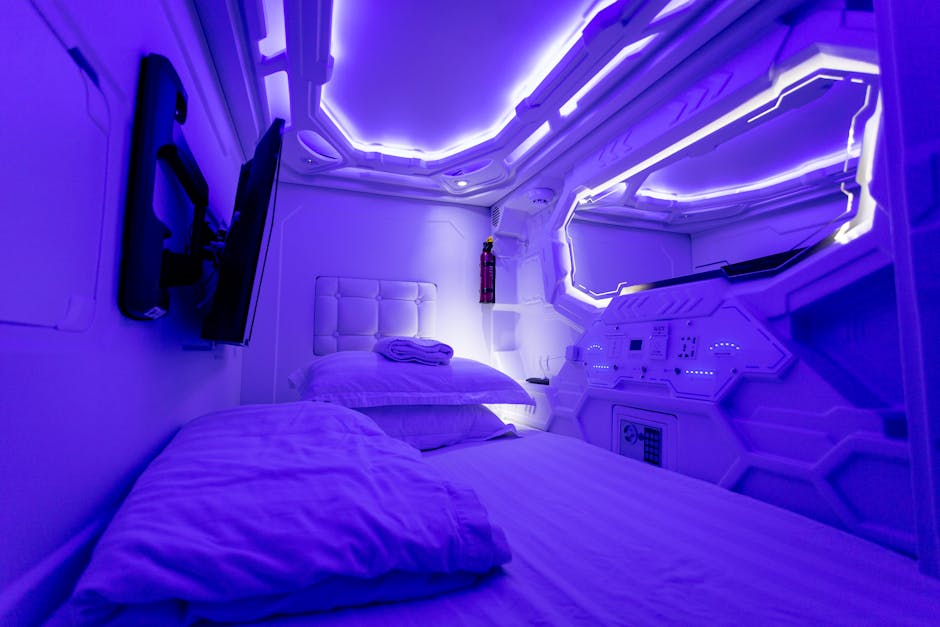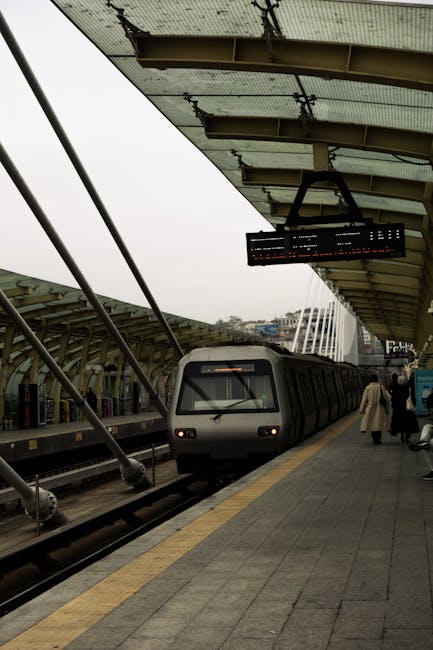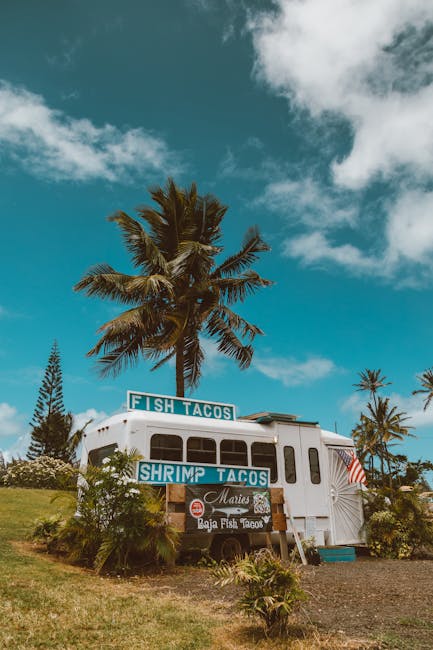The Real Cost of Traveling Japan: Budget Breakdowns & Honest Insights

The Real Cost of Traveling Japan: Budget Breakdowns & Honest Insights
Alright, friend, let's talk Japan. The land of anime, ancient temples, and vending machines that dispense everything from hot coffee to corn soup. It's a dream destination for many, and I totally get it! But let's be honest, dreams can come with a price tag. So, you're probably wondering, "How much does it really cost to travel in Japan?"
I've been there, done that, and got the ramen-stained t-shirt to prove it. I've wandered through bustling Shibuya crossings, meditated in serene Kyoto gardens, and even attempted (and failed miserably) to sing karaoke in Japanese. And through it all, I meticulously tracked my expenses, because, well, adulting. I'm here to share my experiences and give you a realistic breakdown of what you can expect to spend on your own Japanese adventure.
This isn't some cookie-cutter travel blog post promising you can see Japan on $30 a day while eating caviar. This is real talk. We'll dive deep into the various cost factors, from flights and accommodation to food, transportation, and activities. I'll share tips and tricks I've learned along the way to help you stretch your yen further and avoid those unexpected budget-busting surprises.
Flights: The First Big Bite Out of Your Budget

Let's start with the elephant in the room – getting there. Flights to Japan can be a significant chunk of your overall budget, especially if you're flying from across the globe. Several factors influence the price, including:
- Time of Year: Peak seasons like cherry blossom season (late March/early April), Golden Week (late April/early May), and New Year's are notoriously expensive. Traveling during the shoulder seasons (spring or autumn) or even the off-season (winter, excluding New Year's) can save you a considerable amount of money. I found that flying in late October, after the typhoon season but before the crowds surged for the autumn leaves, was a sweet spot in terms of price and weather.
- Departure City: Flights from major hubs are often (but not always) cheaper. If you're flexible, consider flying out of a nearby larger airport even if it means a bit of extra travel within your home country.
- Airline: Budget airlines like ZIPAIR and Peach Aviation offer some great deals, especially on domestic routes. However, be mindful of baggage restrictions and extra fees. Full-service airlines usually come with a higher price tag but offer more amenities and flexibility.
- Booking Time: The age-old question – when to book? While there's no magic formula, booking several months in advance (ideally 3-6 months) generally gives you access to better deals. Set up price alerts on Google Flights or Skyscanner to track prices and be notified of any drops.
My Experience: I usually try to snag round-trip flights for under $800 USD from the US West Coast. It requires patience and flexibility with travel dates, but it's definitely doable. I once found a killer deal on a Korean Air flight with a short layover in Seoul, which even allowed me a quick glimpse of another country!
Accommodation: From Capsule Hotels to Ryokans

Japan offers a wide range of accommodation options to suit every budget and preference. From ultra-modern capsule hotels to traditional ryokans (Japanese inns) with tatami mats and onsen (hot springs), there's something for everyone. Here's a breakdown of the most common choices and their approximate costs:
- Capsule Hotels: These are the epitome of budget-friendly accommodation in Japan. They offer basic, compact sleeping pods, often with shared bathrooms and communal areas. Expect to pay around $25-$50 per night. A great option for solo travelers on a tight budget. They're surprisingly comfortable and a unique experience.
- Hostels: Another great option for budget travelers, hostels offer dorm rooms and sometimes private rooms. Prices typically range from $30-$60 per night for a dorm bed and $70-$120 for a private room. They're a fantastic way to meet other travelers and get local tips.
- Business Hotels: These are no-frills hotels that cater primarily to business travelers, but they're also a good option for tourists. Rooms are usually small but clean and functional. Prices range from $60-$150 per night. They're conveniently located near train stations and offer amenities like free Wi-Fi.
- Airbnb: Renting an apartment or house through Airbnb can be a good option, especially for families or groups. Prices vary widely depending on the location, size, and amenities, but you can often find deals that are comparable to or even cheaper than hotel rooms. Just make sure to read reviews carefully and check the host's cancellation policy.
- Ryokans: For a more traditional Japanese experience, consider staying at a ryokan. These inns offer tatami-mat rooms, futon beds, onsen, and often include breakfast and dinner. Prices are generally higher, ranging from $150-$500+ per night, but the experience is worth it for a special occasion.
My Experience: I usually mix and match accommodation types depending on the location and my budget. I'll often stay in hostels in larger cities like Tokyo and Osaka to save money, and then splurge on a ryokan in a more rural area like Hakone or Takayama for a truly immersive experience. I've also had some great Airbnb experiences, especially when traveling with friends.
Transportation: Navigating Japan's Efficient Network

Japan's public transportation system is incredibly efficient and punctual, but it can also be expensive. The Japan Rail Pass (JR Pass) is a popular option for tourists, but it's not always the most cost-effective choice. Let's break down the various transportation options:
- Japan Rail Pass (JR Pass): This pass allows unlimited travel on most JR trains, including shinkansen (bullet trains), for a specified period (7, 14, or 21 days). It's a good option if you plan on doing a lot of long-distance travel between cities. However, it's essential to calculate whether the pass will actually save you money compared to buying individual tickets. Consider your itinerary and use online calculators to compare costs. Important: The JR Pass must be purchased before you arrive in Japan.
- Individual Train Tickets: If you're not planning on extensive long-distance travel, buying individual train tickets may be more cost-effective. You can purchase tickets at train stations or online. For shinkansen, it's advisable to reserve your seats in advance, especially during peak season.
- Local Transportation Cards (e.g., Suica, Pasmo): These rechargeable cards can be used on trains, buses, and subways in most major cities. They're convenient and save you the hassle of buying individual tickets each time. You can purchase them at train stations and top them up as needed.
- Buses: Highway buses are a cheaper alternative to shinkansen for long-distance travel, but they're also slower. They're a good option if you're on a tight budget and have plenty of time.
- Taxis: Taxis in Japan are clean and reliable, but they're also expensive. I'd generally recommend avoiding them unless absolutely necessary.
My Experience: I usually opt for a combination of the JR Pass (if I'm doing a lot of long-distance travel) and local transportation cards. I also try to walk as much as possible, as it's a great way to explore cities and save money. I once took an overnight highway bus from Tokyo to Osaka to save on accommodation costs – it wasn't the most comfortable experience, but it definitely saved me some yen!
Food: A Culinary Adventure for Every Budget

Japanese cuisine is incredibly diverse and delicious, and you don't have to break the bank to enjoy it. From Michelin-starred restaurants to humble ramen shops, there's something for every taste and budget. Here's a breakdown of food costs:
- Convenience Stores (Konbini): 7-Eleven, FamilyMart, and Lawson are your best friends when traveling in Japan on a budget. They offer a wide variety of ready-made meals, snacks, and drinks at affordable prices. You can get a decent bento box (lunch box) for around $5-$8.
- Ramen Shops: Ramen is a quintessential Japanese dish, and you can find delicious bowls for around $8-$15. Look for local ramen shops, which are often cheaper and more authentic than chain restaurants.
- Izakayas (Japanese Pubs): Izakayas are a great place to sample a variety of small dishes and drinks. Prices vary depending on the establishment, but you can usually get a satisfying meal for around $20-$30.
- Restaurants: Dining at restaurants in Japan can be expensive, especially in major cities. However, there are plenty of affordable options, such as tempura restaurants and sushi bars. Look for set lunch menus, which are often cheaper than dinner menus.
- Street Food: Don't miss out on Japan's incredible street food scene! From takoyaki (octopus balls) in Osaka to crepes in Harajuku, there's something to tempt every palate. Prices are generally very reasonable.
My Experience: I love exploring the food scene in Japan, and I usually try to balance eating at restaurants with grabbing meals from convenience stores and street food stalls. I'm a huge fan of ramen, and I always make it a point to try the local specialties in each region I visit. One of my favorite budget-friendly meals is a simple onigiri (rice ball) and a cup of miso soup from a konbini.
Activities and Entertainment: Making the Most of Your Trip

Japan offers a plethora of activities and attractions, from ancient temples and shrines to modern museums and amusement parks. Here's a breakdown of activity costs:
- Temples and Shrines: Many temples and shrines are free to enter, while others charge a small admission fee (usually around $3-$5).
- Museums: Museum admission fees typically range from $5-$20. Consider purchasing a museum pass if you plan on visiting multiple museums.
- Gardens: Japanese gardens are renowned for their beauty and tranquility. Admission fees usually range from $5-$10.
- Amusement Parks: Amusement parks like Tokyo Disneyland and Universal Studios Japan can be expensive, with admission fees ranging from $70-$100 per day.
- Free Activities: There are plenty of free activities to enjoy in Japan, such as exploring parks, visiting local markets, and attending free events and festivals.
My Experience: I try to balance paid activities with free ones. I love visiting temples and shrines, strolling through gardens, and exploring local neighborhoods. I also enjoy attending festivals and events, which are often free and offer a glimpse into Japanese culture. I usually budget around $30-$50 per day for activities and entertainment.
Miscellaneous Expenses: Don't Forget the Details!

There are always those little expenses that can add up quickly. Here are a few things to keep in mind:
- Wi-Fi: Wi-Fi is widely available in Japan, but it's not always free. Consider renting a pocket Wi-Fi device or purchasing a SIM card for your phone. Pocket Wi-Fi devices usually cost around $5-$10 per day.
- Travel Insurance: Travel insurance is essential, especially if you're traveling internationally. It can cover medical expenses, lost luggage, and trip cancellations.
- Souvenirs: It's hard to resist buying souvenirs in Japan, but they can quickly eat into your budget. Set a limit for souvenir spending and stick to it.
- Laundry: If you're traveling for an extended period, you'll need to do laundry. Coin laundries are widely available and relatively inexpensive.
- Unexpected Expenses: It's always a good idea to have a buffer in your budget for unexpected expenses, such as transportation delays or medical emergencies.
Budget Breakdown: Real Numbers from My Trips

Okay, let's get down to brass tacks. Here's a breakdown of my average daily spending in Japan, based on my own experiences:
- Budget Traveler (Backpacker Style): $50-$80 per day. This assumes you're staying in hostels or capsule hotels, eating primarily at convenience stores and ramen shops, using local transportation, and focusing on free activities.
- Mid-Range Traveler (Comfortable Exploration): $100-$150 per day. This assumes you're staying in business hotels or Airbnb apartments, eating at a mix of restaurants and affordable eateries, using a combination of JR Pass and local transportation, and participating in some paid activities.
- Luxury Traveler (Indulge & Enjoy): $200+ per day. This assumes you're staying in ryokans or high-end hotels, eating at restaurants and izakayas, using taxis and shinkansen extensively, and participating in a wide range of activities and experiences.
Important Note: These are just estimates, and your actual spending may vary depending on your travel style and preferences. Remember to factor in the cost of flights and accommodation when calculating your overall budget.
Let's look at a sample two-week trip, excluding flights:
Budget: $700 - $1120 Mid-Range: $1400 - $2100 Luxury: $2800+
Tips and Tricks for Saving Money in Japan

Here are some of my top tips for saving money on your trip to Japan:
- Travel during the off-season: As mentioned earlier, traveling during the off-season can save you a significant amount of money on flights and accommodation.
- Cook your own meals: If you're staying in an Airbnb apartment with a kitchen, consider cooking some of your own meals to save money on eating out.
- Take advantage of free activities: There are plenty of free activities to enjoy in Japan, such as exploring parks, visiting local markets, and attending free events and festivals.
- Purchase a Japan Rail Pass: If you plan on doing a lot of long-distance travel, a JR Pass can save you money.
- Use local transportation cards: Local transportation cards like Suica and Pasmo are convenient and save you the hassle of buying individual tickets.
- Eat at convenience stores and ramen shops: These are affordable and delicious options for budget travelers.
- Look for set lunch menus: Set lunch menus at restaurants are often cheaper than dinner menus.
- Walk as much as possible: Walking is a great way to explore cities and save money on transportation.
- Take advantage of free Wi-Fi: Many cafes and restaurants offer free Wi-Fi.
- Be mindful of souvenir spending: It's hard to resist buying souvenirs, but they can quickly eat into your budget. Set a limit and stick to it.
- Consider overnight buses: If you're traveling long distances and on a strict budget, overnight buses can save you money on accommodation.
Final Thoughts: Japan is Worth It!

Traveling in Japan can be expensive, but it's absolutely worth it! The country offers a unique and unforgettable experience that you won't find anywhere else. With a little planning and budgeting, you can make your dream trip to Japan a reality, no matter your budget.
Don't let the perceived cost deter you from exploring this incredible country. Embrace the local culture, savor the delicious food, and immerse yourself in the beauty and wonder that Japan has to offer. You won't regret it!
So, start planning your adventure, my friend! And if you have any questions, feel free to ask. I'm always happy to share my experiences and help others make their travel dreams come true. Safe travels! ✈️
Post a Comment